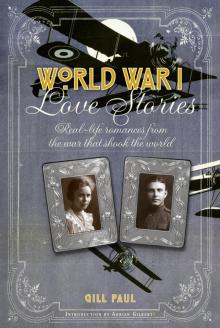The Lost Daughter Read online
Page 28
Maria took a deep breath. “You would do that for us?” She frowned, puzzled. “I would be greatly in your debt.”
“There’s no need for such formality.” He smiled, the shiny pink scar that zigzagged down his cheek stretching. “Perhaps we could attend a concert together on my return,” he continued. “I hear the Radio Symphony Orchestra still give performances.”
Maria stared at him in astonishment. His experience of the war must be fundamentally different from hers if he could consider spending time and money on anything but food.
He misread her expression. “I’m sorry. I know it is only a little over four years since your husband died, and perhaps you are not ready, but since we are both on our own, I thought perhaps you would like company. I know I would.”
Maria felt sick at the thought that he saw this as some kind of romantic overture, but at the same time she yearned to get Mikhail and Katya safely across the lake. She hesitated, not wanting to give him hope yet at the same time keen to take him up on his offer. “I work long hours and am tired when I finish, but perhaps sometime we will be able to listen to music together. It seems like a dream from another life, one I can barely remember.”
“I have always loved music,” he said. “I couldn’t live without it.” He smiled again. “So tomorrow, I will collect the children at four o’clock. Have their bags packed and ready.”
“Of course I will,” she said. “And thank you, from the bottom of my heart.”
* * *
Maria packed with infinite care. Each child had a large bag with sweaters, socks, shoes, nightwear, and a warm blanket, as well as a small satchel that could be slung around their body. In the satchels she packed a bottle of her elecampane mixture, two slices of bread, a precious jar of preserved food from her stock, and a twist of paper with some vitamin powder. She gave each a purse of money, some pencils, paper, and envelopes with stamps so they could write home, and their ration cards, as well as bowls and cutlery. Yuri had said he would take care of the paperwork.
She tried to think of a sentimental keepsake she could send with each, and at the last minute, she slipped in some wooden animals Peter had carved for them when they were little: a waddling duck that could be pulled on a string for Katya, and a roaring tiger for Mikhail. They would chuckle when they unpacked their bags and found them.
“You must look out for each other no matter what,” she told them. “Insist you are not to be separated. Write to me when you arrive and ask at the children’s home for help in posting your letters. As soon as the siege is lifted, I will come and find you.”
“What if we are better before then, Mama? Can’t we come home early?” Mikhail asked.
She nodded. “Of course. Come back as soon as you can. But both of you must travel together. Don’t forget that rule.”
The bell rang at four and Maria gathered her coat and pulled on her boots so she could accompany them to Finland Station. Yuri was driving an NKVD van and motioned for them to climb in the back. There were no windows, just narrow benches to sit on, and it made Maria feel queasy. Peter had been driven off in one of these vans and they’d never seen him again. She shook the thought away. The children were anxious about the journey and it was important that she sound cheerful and positive. Katya’s forehead was burning hot; Mikhail’s not so bad. Was she doing the right thing sending them off with an NKVD officer? What would Peter think? She hoped he would agree with her decision.
At the station, Yuri bypassed the teeming mass of people, showed his ID papers to a guard, then carried their bags onto a train already standing at the platform. It would take them on a one-hour journey to Osinovets, before they transferred onto the Ice Road. Maria gave both children a last hug, squeezing so tight they could scarcely breathe. “Write as soon as you arrive,” she instructed for the hundredth time.
“We will,” Mikhail promised, but Katya was too poorly to answer.
Yuri helped them onto the train and Maria stood watching until it pulled away in a pall of smoke.
What am I doing? she panicked. Have I just made the biggest mistake of my life? If so, it was too late to change her mind. She turned and trudged home with dragging feet. The streets echoed to the sound of the metronome that was now broadcast from public loudspeakers in between classical music concerts and news announcements, like the heavily beating heart of the city. Tonight it felt ominous. When would she see them again? Pray God it would be soon.
Chapter 44
Leningrad, February 1942
YURI HAD SAID HE WOULD RETURN THE FOLLOWING weekend and Maria counted the hours. Had he meant Saturday? The day passed without him appearing. Or Sunday? Still no sign. On Sunday evening, she trudged all the way to the Bolshaya Apartments and persuaded a neighbor to let her into the block, then hammered on his door until her knuckles were bruised. Perhaps he had been delayed by work. That must be it.
“How long does it take for a letter to arrive from the other side of the lake?” she quizzed Stepan next morning, after a sleepless night.
He put an arm around her shoulders and gave her a squeeze. “Personal letters are very low priority. The trucks coming back this way are loaded with ammunition and essential supplies. We must have faith that they are fine, and that they will soon be cured. Anything could have happened to Yuri. Maybe he has been arrested. From what you say, he was breaking more than a few rules.”
That thought did not comfort Maria. She was desperate for news. If only she knew where to write to Mikhail and Katya; if only they had a telephone. Her family used to have telephones at the Alexander Palace back in 1917; the technology had been available for decades, but most Russians did not have a home telephone, even in 1942. She supposed that if they had, the Germans would have cut the lines.
Worry gnawed at her insides, making it hard to sleep at night, and her work suffered. She knew she was being less efficient in her duties at the factory, but no one complained. All were growing weaker; all had their personal worries.
* * *
In late February, Galina came to knock on Maria’s door, looking like a ghost.
“My mother is sick,” she said. “Please will you come?”
Maria hesitated, but her anger with Galina and Raisa for having Peter arrested had long since faded, now that the struggle for survival was paramount. “All right,” she said, and followed the girl to their apartment.
All those years they had lived in the same block, Maria had never been inside Raisa’s rooms. They were similar to hers, but more sparse. There were holes in the floor where she guessed they had torn up strips of floorboard to burn for heat. Galina led her to the bed, where Raisa lay on her back, eyes closed, mouth wide, skin a ghastly white. Maria knelt to touch her forehead and knew straightaway that she had been dead for some time. All the same, she checked for a pulse and listened with her ear to Raisa’s mouth in case she could detect a hint of breath, but there was nothing. Galina was shifting her weight from foot to foot, looking petrified.
“I’m so sorry,” Maria said, and the girl wailed a drawn-out “Noooo!”
“Where is your father?” she asked.
“He died in December,” Galina stuttered, and Maria felt ashamed she hadn’t noticed. She’d been too busy caring for her own family.
“What will I do?” Galina cried, hysteria in her voice. “I can’t look after myself.”
She was sixteen years old, like Katya. Too young to manage on her own. But why should Maria take on someone else’s child, a child who had caused her husband to be executed? She overruled the bitterness in her heart. “You must come and live with us,” she said. “Do you have any food here?”
Galina shook her head.
“I will teach you to forage. If you are to share our food, you must help to find it. Agreed?”
“Of course.” Galina was close to tears. “What shall we do with Mother?”
Maria knew that no ambulances were sent to collect bodies anymore, and that they would never find a coffin in which to bury her. The t
emperature was twenty degrees below freezing, so they had time. “Let’s leave her in her bed for now. I’ll speak to someone.”
Stepan, Irina, and Yelena accepted Galina’s presence without question, and Maria was proud of them. Stepan showed the girl where he had set traps to catch birds and rats and asked her to check them regularly; Maria taught her the type of plants to hunt for and where they might be found; and every day Galina accompanied Irina to collect their rations, because individuals carrying a brown paper bag of bread were liable to be mugged before they reached home.
At the factory, the women shared tips on feeding their families.
“You can scrape the wallpaper paste off the walls and eat it,” one said. “It’s flour and water, after all.”
“There’s some goodness in leather if you boil it long enough then drink the water,” another volunteered.
“I heard some people have turned to cannibalism,” an older woman told them, “even murdering their victims in order to eat them.”
“Russians would not do such a thing,” Maria insisted. But then she remembered that the men who had butchered her family were Russians. If they could do that, perhaps some would consume human flesh.
The bread ration dropped to just one small slice per person per day, and that was bulked out with sawdust so did little to relieve the pain that twisted their guts. The food at the factory canteen was watered down and there was less of it, so it became harder to bring jugs home. Still Maria tried to make the evening meal look appetizing: a taste of green soup, the occasional mushroom or two, a tiny portion of rat, bird, or fish, when available, and the crumbly, bitter-tasting slice of bread. If she ate slowly, and chewed each bite thirty times, she could almost convince herself it was a meal.
* * *
When Maria’s colleague at work received a letter from her children in home number 44, Maria swallowed her jealousy. Mikhail and Katya must be at a different home, a more distant one where it was harder to post letters. She got Stepan to check at Finland Station, since there were no house-to-house deliveries, but each time he reported there was nothing for her.
The wintry weather eased in March and the Ice Road began to melt, meaning that Mikhail and Katya would not have been able to get back to Leningrad even had they been well enough. It would also be more difficult to get letters through. Every couple of weeks Maria visited Yuri’s apartment, but there was still no sign of him. She told herself he must have been stationed elsewhere, but felt cross he had not written to let her know. He must realize she would worry. She sent Stepan to inquire at Bolshoi Dom, but he was told they did not give out information about the whereabouts of officers.
Not knowing what had happened to her children was a constant nagging pain. Maria tried to picture them sitting at a long refectory table with lots of other children, eating meat and potatoes, laughing and chatting, but she couldn’t hold the image in her mind for long before anxiety returned. She still laid out plates for them at dinnertime before remembering they weren’t there. Her family felt diminished. It was too quiet in the apartment. She missed the noise of everyone talking at once, the arguments over the bath, the smell of their hair when she hugged them. It was different from the way she missed Peter, but no less excruciating.
The bombing raids started again with the warmer weather, and still there was no sign of the Red Army coming to relieve them. One Sovinform bulletin said Hitler claimed he would take Leningrad by August and informed citizens that Jews were being rounded up in all the areas his troops had conquered. It seemed there was regular bad news, drip by depressing drip. Even Yuri Levitan couldn’t lighten the message.
At least it was easier to find food in the spring. Stepan caught rabbits out by the barricades, and Maria planted a vegetable patch in the courtyard with some seeds distributed as part of a gardening drive. She nurtured herbs there too: ones Peter had taught her had medicinal uses, such as elecampane and yarrow, comfrey and thyme. Irina got a boyfriend who worked at the Krupskaya sweet factory, and she brought home sugary candies and bars of powdery chocolate that had been made without cocoa. Maria could make a single sweet last all evening by holding it in the pouch of her cheek, the flavor oozing out and bringing a temporary contentment. But then the boyfriend slapped Irina, she told him she wouldn’t see him anymore, and their brief moments of bliss were over.
Hitler had not arrived in the city by August, but neither was there any sign of the siege breaking. “We can’t last another winter,” Maria’s work colleagues whispered to each other, memories of the bodies in the streets and the unremitting cold still fresh in their minds. Maria remembered Peter telling her that you could predict the severity of a forthcoming winter by the size of the pinecones and the thickness of squirrels’ nests, but she could not decide whether they were bigger or smaller than normal.
A universal gloom descended when the first frost came in October, followed closely by a blustery storm. Maria was scared. When she washed herself in the bathroom, she could see that the skin was stretched tight over her bones. Her kneecaps looked huge, and flaps of wrinkled skin hung off her thighs. It hurt to sit on a stool because there was no flesh left on her bottom. She never looked at her face in a mirror, but knew she must be a sight: four teeth had loosened and fallen out while she was eating, and her hair came away in handfuls when she combed it. She was only forty-three years old, but she didn’t know if she could survive another winter.
* * *
On October 31, when Maria set off for work the pavement was glistening like diamonds in the predawn light. Her boots had worn through and the cardboard insoles she’d made provided little insulation, so her feet were frozen numb soon after she left home. Even wrapped in her heavy overcoat and thick wool hat, she never felt warm these days.
It was several weeks since she had managed to visit Peter’s grave, and she missed the peacefulness she found there when she talked to him in her head. She resolved to go soon. She’d been putting it off because she didn’t feel strong enough, but maybe she would manage if she walked slowly and stopped for lots of rests.
Suddenly she lost her footing on a patch of ice and slipped. She twisted around, scrabbling to catch hold of a railing, and her right leg bent underneath her. There was a sickening crack as she landed on the pavement and she knew straightaway that her thigh was broken. There was no pain at first, just a sensation of deadness, a feeling that her lower half was at the wrong angle. She lay panting, scared to move in case she made it worse. Her first thought was of that nice soldier who had helped her home before. Where was he now? Stepan was at work, and so was Irina. Galina was taking Yelena to line up for bread, but they would go in the opposite direction. It was quiet along the road where she lay, but someone must pass before long.
The sun began to rise but there was no warmth in it, and Maria started to shiver. She heard footsteps approaching from behind and turned to see a woman, stooped and elderly-looking but probably no older than her.
“I’ve broken my leg,” she called. “Please get help.”
The woman barely glanced at her as she walked past without stopping. Maria was distraught. What kind of person would do that? The cold was penetrating her bones now and she began to feel sleepy. That was dangerous; a sign of hypothermia. If she gave in, she would never wake again. There was nothing for it but to start dragging herself home.
She reached out with her arms and pulled herself a few inches along the pavement. A jab of excruciating pain made her scream out loud. She paused and tried to shift her weight so that the other leg was closer to the ground, then pulled herself forward again. It was still agony. For a moment she thought she would give up; just lie down and die. It was tempting. But then she pictured her children. Little Yelena was only just eleven and needed her mommy. What would Mikhail and Katya think when they got back to find her gone? And she would be letting Peter down if she did not do all she could to stay alive.
Gritting her teeth, she dragged herself forward once more. When she reached the main road, se
veral people walked around her with eyes averted. She didn’t ask for help now, just focused her will on each movement onward.
It must have been over an hour later when she reached the corner of her street. The sun was fully risen and the ice was melting, soaking through her coat. Her leg was throbbing, sending needles of pain up her spinal cord, but the door to her block was in sight.
“Mama!” a voice screamed, and she turned to see Yelena rushing down the road, with Galina close behind carrying a basket. “What happened?”
“I fell on the ice.” Maria bit her lip at another spasm of pain. “Can you find someone to help me upstairs? I can’t walk.”
While Yelena went inside to fetch a neighbor, Maria told Galina the truth, that her leg was broken.
“You should be in hospital,” Galina said, but there was no way to get her there.
Yelena returned with a teenage boy who lived on the ground floor, and among the three of them they managed to lift Maria so that her bad leg dangled and she half hopped, was half carried up to the third floor.
There was a table leg from Raisa’s apartment in the woodpile. Maria asked Yelena to bring it to her along with some clean rags, then she peeled back her coat and lifted her skirt to look at her thigh. It was hideously swollen, like an elephant’s leg, marked with red and purple blotches, but at least the bone had not penetrated the skin.
“Take my boots off, then leave me alone,” she ordered. “I need to be on my own.”
Once they left the room, she gripped a pillow between her teeth and felt along her thigh with her fingers, poking through the swelling to see where the bone was cracked and how it should lie. Biting down hard, she pushed it into place, almost passing out with the pain. Tears streamed down her cheeks as she tied the chair leg to her thigh as a splint, pulling hard to tighten the knots. When it was done, she dragged the bedcover over herself, laid her head on the pillow, and lost consciousness.

 The Collector's Daughter
The Collector's Daughter The Lost Daughter
The Lost Daughter Jackie and Maria
Jackie and Maria The Affair
The Affair Love...Maybe
Love...Maybe The Secret Wife
The Secret Wife No Place For a Lady
No Place For a Lady Another Woman’s Husband
Another Woman’s Husband World War I Love Stories
World War I Love Stories World War II Love Stories
World War II Love Stories